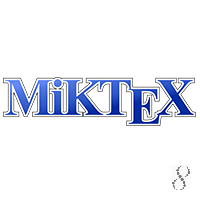Troubleshoot ETX Files
Frequent ETX Opening Issues
MiKTeX Isn't There
When you double-click your ETX file, you may see a dialog box from your operating system stating that it "Cannot Open This File Type". When this happens, it is commonly due to MiKTeX missing in %%os%%. You won't be able to double-click to open your ETX because your OS doesn't know what to do with it.
Tip: When you have another program installed that you know will open your ETX, you can select it from the other programs listed (see "Show Apps").
Incorrect MiKTeX Version
In other instances, your TeX Font Encoding File file version may not be supported by your version of MiKTeX. Download the latest MiKTeX version from the Christian Schenk website to ensure you have the correct one installed. This problem is most common when you have an older version of the software application, and your file was created by a newer version that it cannot recognize.
Tip: You can sometimes get hints about the right program version by right-clicking on the ETX file, selecting "Properties", and looking at the version information.
Regardless, most of the ETX file opening problems relate to not having the right version of MiKTeX installed.
Additional ETX Opening Issues
Assuming you have the right MiKTeX version installed, other problems can prevent you from opening ETX files. There can be external issues inside of %%os%% that are causing these errors when opening ETXs. Other contributing causes:
- Corrupt Windows Registry file path references for ETX
- The ETX file description within the Windows Registry was removed
- Corrupt install of MiKTeX or other ETX-related program
- File corruption affecting your ETX file
- Your ETX has adversely impacted by malware
- Device drivers of the hardware associated with your ETX file are corrupt or out-of-date
- Windows cannot load your TeX Font Encoding File file due to insufficient resources (eg. RAM)
Quiz: Which of the following is not a MIME type?

That's Correct!
Spreadsheet MIME types do not begin with the "spreadsheet/" prefix, but instead start with the "application/" prefix. For example, an OpenDocument Spreadsheet: "application/vnd.oasis.opendocument.spreadsheet".
Close, but not quite...
Spreadsheet MIME types do not begin with the "spreadsheet/" prefix, but instead start with the "application/" prefix. For example, an OpenDocument Spreadsheet: "application/vnd.oasis.opendocument.spreadsheet".




















